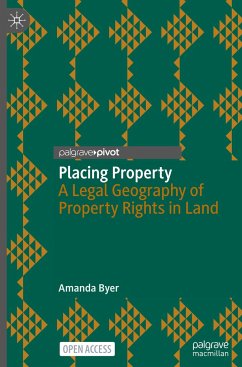This open access book presents a legal geography of property rights in land through the lenses of landscape and critical spatial justice. It seeks to reassert the importance of landscape and place in property as an alternative to abstract concepts of property which dominate contemporary thinking. It investigates property's origins and uptake in the common law through the lenses of landscape and spatial justice, providing a genealogy of property, from its early origins in pre-feudal Scandinavia to its development as a cornerstone concept in English common law. It offers a new perspective and analytical tools to reconsider many accepted approaches to land in the law today. This book also contributes both to the decolonization of property law and critiques of property's unsustainability, as well as the examination of the role of law itself in facilitating large scale land changes that destroy place, and the ramifications of this process. As such, it should be of interestto inter-disciplinary scholars working in the socio-legal, environmental and property law fields
"The book offers a concise and good overview of several leading approaches to property, while suggesting new venues and concepts, particularly the concept of 'landscape', which would re-emplace land in its natural, social, and cultural surroundings." (Alexandre (Sandy) Kedar, Journal of Law and Society, April 30, 2024)








